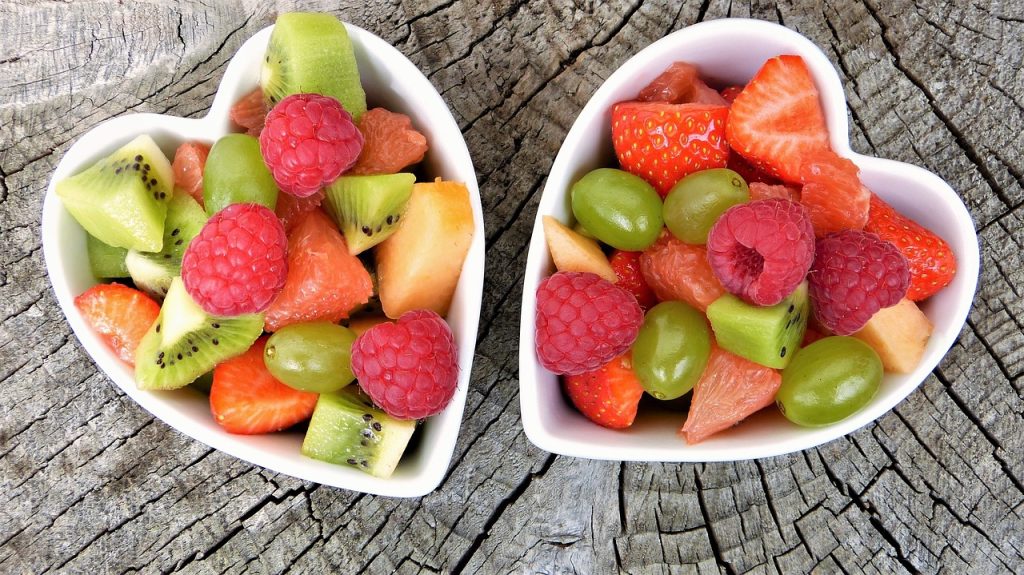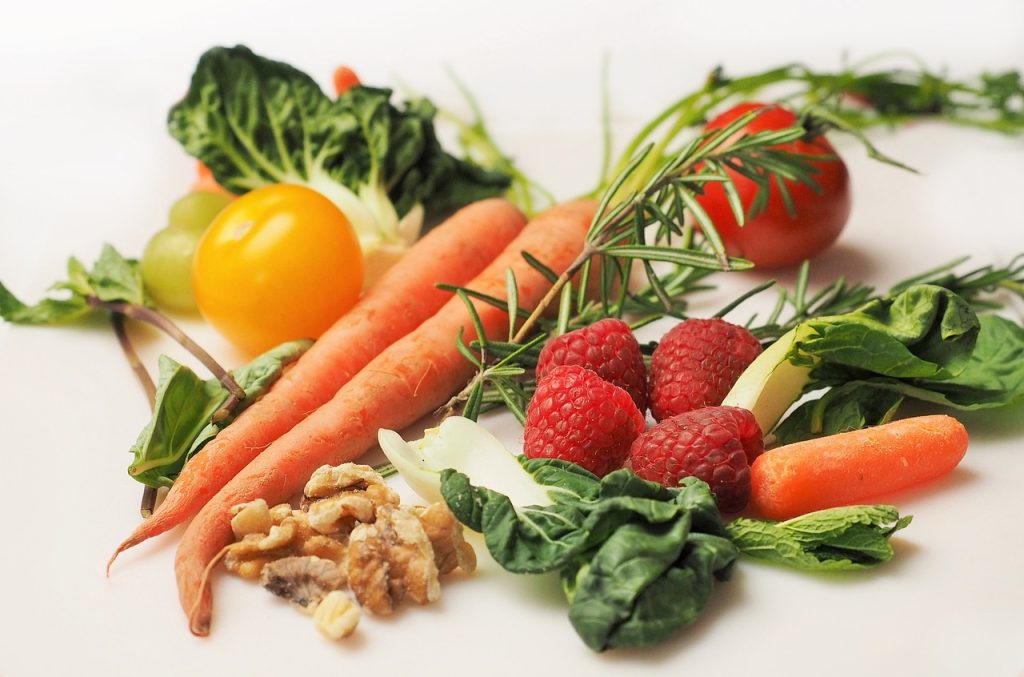Fruits vs Vegetables for Weight Loss:
Exploring the Nutritional Nuances
When considering weight loss, it’s impossible to overemphasize the importance of incorporating fruits and vegetables into your diet. These natural powerhouses are rich in vital nutrients, fiber, and are low in calories, making them exceptional choices for individuals aiming to shed excess weight and adopt a healthier lifestyle. However, in the context of weight loss, it’s crucial to ask: are all fruits and vegetables equally effective? In this comprehensive article on ‘Fruits vs Vegetables for Weight Loss,’ we will compare the nutritional distinctions between these two dietary essentials, debunk prevalent myths, and provide practical insights to help you harness their full potential for achieving your weight loss goals.

Understanding the Basics
Before we delve into the specifics, let’s establish some foundational knowledge about the role of fruits and vegetables in weight management.
- Caloric Value
Both fruits and vegetables are known for their relatively low calorie content. When compared to high-calorie, processed foods, they offer a valuable advantage in creating a caloric deficit necessary for weight loss.
- Fiber Content
Fiber is your ally in the battle against unwanted pounds. Fruits and vegetables are excellent sources of dietary fiber, which not only keeps you feeling full but also supports digestive health and regulates blood sugar levels.
- Nutrient Density
Nutrient density refers to the concentration of essential vitamins, minerals, and antioxidants in a given food. Fruits and vegetables are some of the most nutrient-dense foods available, offering a treasure trove of health benefits beyond weight loss.
- Natural Sugars
Fruits contain naturally occurring sugars, primarily in the form of fructose. While they are healthier than added sugars, some fruits can be relatively high in sugar. Vegetables, on the other hand, are generally lower in sugar.
Now, let’s compare the two categories, keeping in mind that individual variations exist within each group.
Fruits for Weight Loss
Fruits, with their vibrant colors and sweet flavors, are a tempting choice for those looking to lose weight. They offer a range of benefits but also come with some caveats.
Berries: Weight-Loss Treasures
Berries, encompassing blueberries, strawberries, and raspberries, emerge as a smart choice for weight-conscious individuals. They are not only calorie-friendly but also boast a rich reservoir of antioxidants. These attributes make them a top pick for anyone on a weight loss journey. The natural sweetness of berries can satiate your sweet tooth while delivering a bounty of essential vitamins and minerals.
Apples and Pears: Fiber Powerhouses
Apples and pears have earned a reputation as fiber champions, with their skins being the primary source of this satiating nutrient. Fiber is your secret ally in managing appetite, fostering a sense of fullness, and reducing your overall calorie intake. Moreover, the crisp bite of apples adds to your satisfaction, contributing to a lasting feeling of fullness.
Citrus Fruits: Refreshing and Calorie-Wise
Oranges and grapefruits offer a refreshing, low-calorie addition to your diet. Bursting with vitamin C, these fruits provide vital hydration, contributing to overall health. Some research even hints at compounds in grapefruit that might modestly support weight loss, though the effects should not be overestimated.
Avocado: The Healthy Fat Player
Avocado, though technically a fruit, stands apart due to its relatively high healthy fat content, primarily consisting of monounsaturated fats. These fats serve as a reliable ally in helping you feel full and satisfied, rendering avocados a valuable asset in your weight loss strategy, as long as they are consumed in moderation.
Vegetables for Weight Loss
Vegetables, with their incredible diversity, are essential for your health and weight management. Let’s dive into some standout options:

Leafy Greens: Nutrient-Rich and Low in Calories
Leafy greens like spinach, kale, and Swiss chard are not only nutrient powerhouses but also incredibly low in calories. They offer an array of vitamins, minerals, and antioxidants to support your overall health and well-being.
Cruciferous Vegetables: Satisfying and Fiber-Packed
Broccoli, cauliflower, and Brussels sprouts are members of the cruciferous vegetable family. They are loaded with fiber, which promotes feelings of fullness and helps control your appetite. Their unique flavors can add variety to your meals.
Peas: The Protein Provider
Peas may be small, but they pack a protein punch. With approximately 5.4 grams of protein per 100 grams, peas are a valuable addition to a weight loss diet. Their protein content contributes to satiety and overall caloric reduction.
Carrots: Crunchy and Low in Calories
Carrots are a crunchy and colorful choice for those watching their weight. With approximately 41-42 calories per 100 grams, they are a low-calorie option that can be used as a satisfying snack or a versatile ingredient in various dishes.
Debunking Common Myths
As we delve further into our discussion, it’s crucial to dispel a few common misconceptions about fruits, vegetables, and their role in weight loss.
Misconception 1: Targeted Fat Loss with Fruits and Vegetables
One of the prevailing misconceptions suggests that by consuming specific fruits or vegetables, you can selectively target fat loss in particular areas of your body. Regrettably, this notion is far from the truth. Fat loss occurs uniformly throughout the body according to your genetic predisposition, and no particular food or exercise can alter this predetermined pattern.
Misconception 2: Uniform Efficacy of Fruits and Vegetables in Weight Loss
It’s essential to understand that not all fruits and vegetables are equally effective for weight loss. While many of them share attributes like low-calorie content and high fiber, there are individual differences within these food groups. Some fruits may have higher natural sugar content, while certain vegetables could be less abundant in fiber. Recognizing these distinctions is paramount.
Misconception 3: Fruits and Weight Loss – Sugar Content Concerns
There’s a misconception that fruits should be avoided in weight loss plans due to their natural sugar content. In reality, consuming fruits in moderation is not detrimental to weight management. Fruits offer an array of benefits, including fiber, vitamins, and antioxidants, contributing positively to your overall health. It’s the excessive consumption of processed sugars that poses a genuine risk to effective weight control.
The Key to Successful Weight Loss
Achieving effective weight management requires a holistic approach that transcends an exclusive focus on fruits or vegetables. To craft a sustainable, successful strategy, it’s vital to uphold the following principles:
1. Balance and Variety: Infuse your diet with a wide array of fruits and vegetables, ensuring that you receive a comprehensive spectrum of indispensable nutrients.
2. Portion Control: Exercise mindfulness regarding portion sizes, particularly when indulging in fruits that may contain relatively higher natural sugars. While undeniably wholesome, fruits contribute calories to your daily intake.
3. Nutrient Density: Opt for foods that are nutrient-dense, furnishing your body with essential vitamins, minerals, and antioxidants, all of which are pivotal for overall health.
4. Diversify Your Diet: Broaden your culinary horizons by incorporating other food groups like lean proteins, whole grains, and wholesome fats into your daily meals. This diversity fosters a well-balanced diet that effectively supports weight management.
5. Caloric Balance: Forge a caloric deficit by consuming fewer calories than your body requires. This can be achieved through a harmonious blend of dietary choices and physical activity.
Conclusion
In the clash of ‘Fruits vs. Vegetables for Weight Loss,’ both emerge as triumphant allies. These natural dietary components form the bedrock of a healthful, well-rounded diet that promotes weight management and overall well-being. Fruits introduce sweetness and antioxidants to the equation, while vegetables contribute an array of essential vitamins, minerals, and fiber. The secret to a victorious weight loss journey hinges on equilibrium, diversity, portion management, and sustaining an overall caloric deficit.
By comprehending the subtle nutritional nuances of fruits and vegetables, you can fashion a sustainable plan that not only propels you towards your weight loss objectives but also ushers in a wealth of health advantages along the way. So, embrace the vibrant spectrum of fruits and vegetables and enlist them as your steadfast allies on the path to a healthier, leaner version of yourself.








